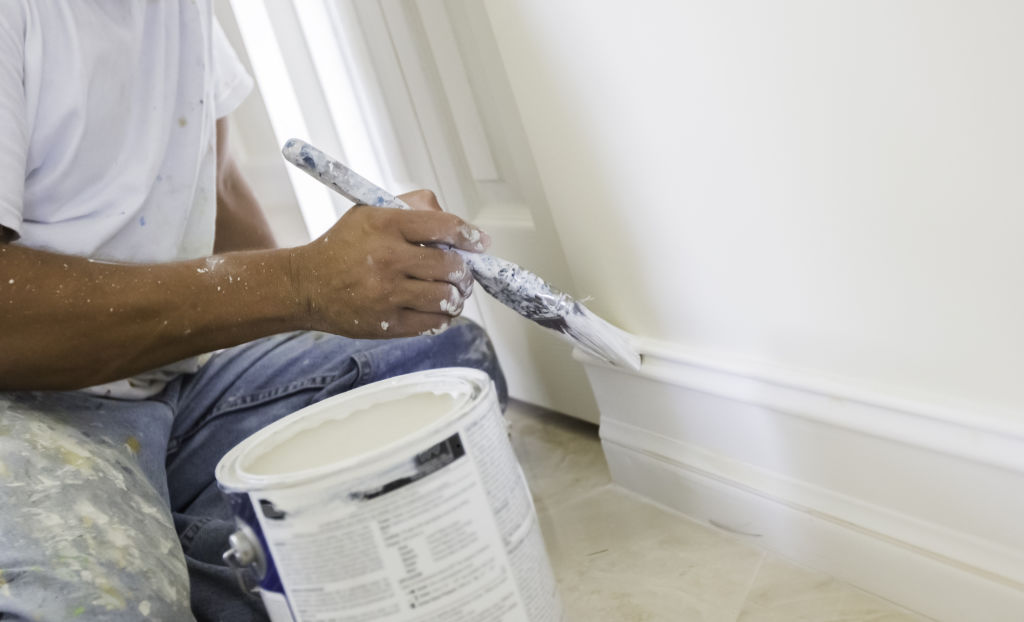The 10 common tax return mistakes property owners should look out for when making tax deductions
She was an accountant, so she really should have known better. But, looking to switch careers and become an opera singer, she claimed tax deductions of over $20,000 for opera gowns and a trip to Italy before she’d even sung her first note.
It’s one of Australian Taxation Office (ATO) assistant commissioner Tim Loh’s favourite examples of people making catastrophic mistakes when lodging their tax return, whether unknowingly or deliberately.
But, similarly, property owners regularly make claims for things they’re clearly not entitled to at the end of each financial year, he says, and forget to make claims for many items they may be able to claim.
“We encourage rental property owners and their registered tax agents to take extra care this tax time and review their records before lodging their return,” Loh said.
“We are particularly focused on addressing common mistakes and supporting taxpayers and registered tax agents to get their claims right this year.”
It’s a big job. Based on their audits, the ATO estimates that about 90 per cent of rental property owners make mistakes on their tax returns.
“They believe that tax gap between what people paid and the amount of tax they should have paid amounts to about $9 billion,” said Mark Chapman, director of tax communications at tax services company H&R Block.
“The level of underpayment is huge. So, they’re looking very closely at property-owners’ tax claims, particularly with investment property.
“Some people know what they’re doing is wrong, but do it anyway. Others don’t realise they’re making a mistake, so it’s important that, coming up to the end of the financial year, everyone is much more aware of what deductions they can claim, and which they can’t.”
With that in mind, these are some of the common tax mistakes property owners can make at tax time that could not only put you in the ATO’s crosshairs, but also potentially see you lumped with a bigger tax bill than necessary.
1. Not being prepared for tax time in advance
Be prepared for the end of the financial year by pulling together all your financial information well in advance, advises Patrick Bush, national head of property managers Different.
“The more information you can provide, the better your refund might be,” he said. “By the same token, the lack of important information can cost you a lot of money. In addition, the faster you can hand over all the relevant information, the quicker any refund will be.
“You should be creating a file to put everything in right now, if you don’t already have one!”
2. Claiming interest on the family home
Some people – quite wrongly – try to claim interest on their mortgage for their family home. That’s not permitted, says Chapman. It is, however, perfectly in order to claim interest on a loan used to purchase an investment property against income.
“But if you have two people who jointly own the property, you can’t shuffle around deductions like interest against the person with the higher income,” he said.

Loh warns rental property owners to understand how to correctly apportion loan interest expenses, particularly where part of the loan was used for private purposes or was refinanced for some private purpose.
“If your loan also includes a private expense, such as for a new car or a trip to Bali, you can only claim an interest deduction for the portion relating to producing your rental income,” he said.
The ATO has recently implemented a residential investment property loans data-matching program.
3. Overlooking tax deductions on investment property expenses
There are a huge number of expenses you can claim against the income from an investment property, Chapman says. Gardening, security costs, cleaning – all these are potentially claimable.
It’s also possible to claim many, like next year’s insurance premium or subscription to a property magazine, this year.
If there are any outstanding repairs that need to be done, or you want to upgrade the property, do that sooner rather than later, urges Bush, so you can claim that at the end of this financial year and get a tax refund.
But many people, advises Loh, over-claim expenses or claim for improvements to their own private property.
- Related: How to manage an investment property
4. Incorrectly claiming property repairs and upgrades in your tax return
Most repairs to an investment property, or upgrades, can be claimed – except if they’re work to rectify defects on a property when it’s first bought. Those are not deductible, although can be put against capital gains tax (CGT) when the home is sold.

“For the first 12 months, if you claim a deduction for a repair, you have to look at whether it’s an initial repair or whether it is genuinely deductible,” Chapman said.
5. Claiming the wrong working from home allowances
Work-related expenses associated with working from home can be claimed at a fixed rate set by the ATO.
But the costs of running a business from home, or if you rent out part of your home as, for instance, your office, then there will still be implications for capital gains tax, said Chapman.
With so many people’s working arrangements changing, with many now working less time from home and more days in the office, it’s important to make sure the claim is up to date, Loh counsels.
“To claim your working from home expenses as a deduction, you can use the actual cost, or the revised fixed rate method, so long as you meet the eligibility and record-keeping requirements,” he said. “Keeping good records will give you flexibility to choose the right method that suits your circumstances and gives you the best deduction this tax time.”
6. Forgetting about property depreciation
A tax depreciation schedule allows owners of income-producing properties to claim for the ageing and depreciation of a building and its assets.
“This means you can claim for wear and tear on a building, which helps reduce the taxable income,” said Bush.
“But you’ve got to make sure you supply any receipts and expenses incurred, so you need to collect them throughout the year. A common mistake is failing to include this when claiming, and people can lose thousands of dollars in this way.”
7. Not engaging a tax expert or accountant to help
One major complication is that tax laws and regulations can change every year, and can vary across different states too, Bush says. It’s for those kind of reasons that it can be advisable to engage a professional tax adviser.
Founder of buyers’ agency Cohen Handler, Simon Cohen, who’s also the property ambassador for H&R Block, says engaging a tax expert to help can be vital.
“You need a professional to help you when it comes to investment property especially as there are so many tax benefits that you need to know about,” he said.
“Equally, you need to make sure you’re not getting screwed on tax. A lot of people miss out on refunds as they don’t know what they can claim. Then they’re constantly surprised by things like land tax, which so many don’t take into consideration, especially when they’re new investors starting out on their investment journey and aren’t yet savvy.”
8. Improperly making deductions on holiday home expenses
A lot of people claim deductions for holiday homes – and include those times when they’re using the home themselves or are renting it out at a discounted rate to family or friends.

“A lot of people claim expenses for periods when they’re there or when they’re keeping it vacant,” Chapman said. “But you can only claim deductions in relation to a property when it’s available to rent. It’s the same when you’re lending it to people you know for less money. You have to be really careful.”
9. Misunderstanding capital gains tax
This tax comes into effect when you sell an investment property, or when you sell your own home if it has been used to produce income, such as renting out rooms on Airbnb or Stayz, or running a business from home.
The capital gain or capital loss needs to be worked out accurately and property owners need to keep records of the income-producing period and the portion of the property used to produce income.
“Don’t fall into the trap of thinking we won’t notice if you sell an asset for a gain and don’t declare it,” Loh said.
10. Putting tax in the ‘too hard basket’
The ATO has a huge amount of information on its website to help property-owners work out what they can claim – and what they can’t claim – at tax time. They also ask people to get in touch if they’re falling behind with their tax and are at risk of incurring penalties.
“Let us know as early as possible or have a chat with your registered tax agent so we can work with you to find a solution,” Loh said. “Don’t bury your head in the sand.”
This year, perhaps more than any other, that’s critically important, believes Bush. “With the rise in the cost of living and interest rate rises, there’s a lot of pressure on property owners, so they really need to maximise their income and alleviate pressures,” he said.
We thought you might like
States
Capital Cities
Capital Cities - Rentals
Popular Areas
Allhomes
More










